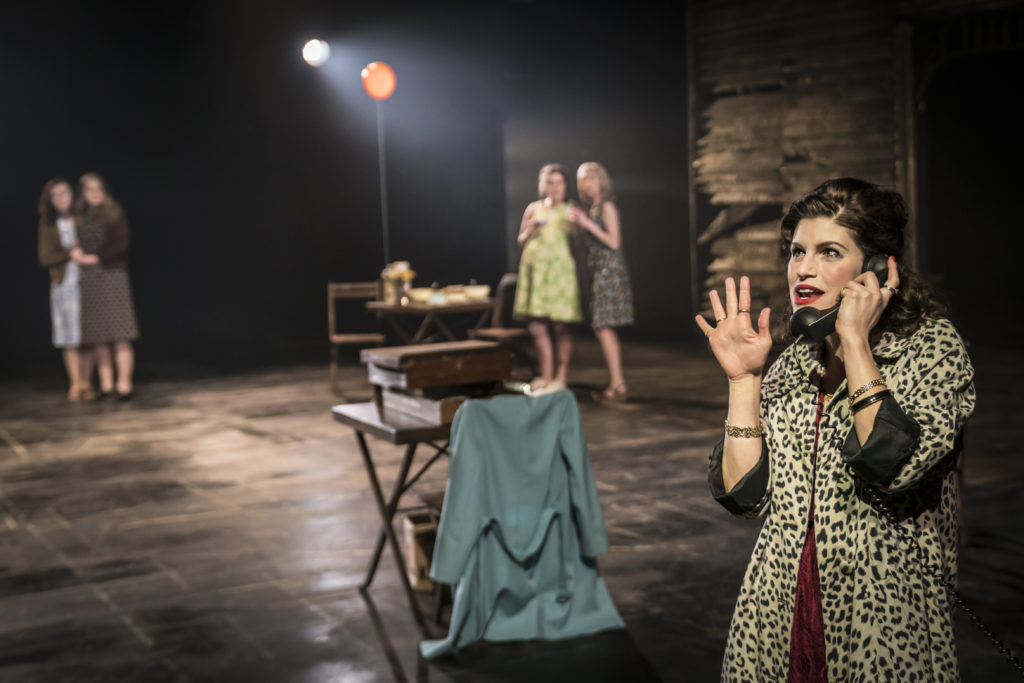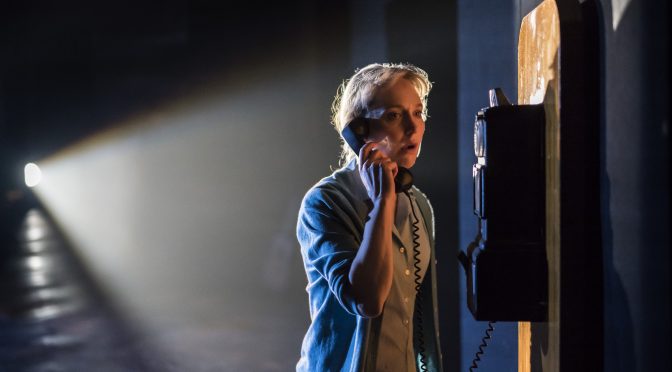While recent revivals of works by the great Arthur Miller have attracted a lot of deserved attention, new productions of plays by his compatriot Tennessee Williams are just as exciting. This one, showcasing a difficult piece that’s often ignored or dismissed, should be a hot ticket. Director Tamara Harvey has crafted a great show that views the text as an opportunity rather than a problem, and the result is revelatory.
Harvey isn’t satisfied with the clichés of Southern Gothic that surround much of Williams’ work. She takes a quieter approach and, at first, the arrival of a charismatic stranger in a small town is played – almost – like a soap opera. There’s a strong sense of community embodied by gossiping neighbours, roles that Catrin Aaron and Laura Jane Matthewson excel in. After all, there’s no reason for the set-up to be instantly claustrophobic. There’s plenty of time for that to develop.
The same restraint is shown with the central pairing of the shopkeeper Lady Torrance and the wandering minstrel Valentine Xavier who comes to work for her. We can see Lady’s frustration and his charisma from the start, but the move into an affair is depicted with sophistication. The excellent performances from Hattie Morahan and Seth Numrich intrigue the audience before ratcheting up the tension.
Of course, Orpheus Descending has oddities – wonderful ones. Lady ends up as one of Williams’ most tragic female leads (which is saying something), while Valentine’s fate aims at being mythic. Yet Morahan prevents Lady from being too much the victim, exciting our interest and arousing our sympathy. Numrich makes his role credible by underplaying the extraordinary – he’s a nice guy rather than some unearthly gigolo.
You might be wondering if Harvey has shorn off too much of the show and perhaps domesticated Williams somehow? But it would be a tough allegation to substantiate. Music and myth are still central to the piece – and focused all the better. The score from Simon Slater is excellent, if too muted. The figure of Uncle Pleasant, suggesting both history and racism – played with commanding presence by Valentine Hanson – is given some of Williams’ scene-setting stage directions to read, enforcing his all-seeing role. There’s still plenty to question and unnerve.

Harvey’s strategy in miniature is shown with the role of local girl gone wrong, Carol. Suggesting conflicts in human nature that Williams wanted to examine makes it a tough call for a performer. But Jemima Roper conveys the ideas with real drama, presenting the desperate figure of a “lewd vagrant”, and a campaigner, clear about the corruption that surrounds her. Finally, she is a visionary who is “sick with neon”. Carefully taking us through these steps enforces the play’s structure, characters and ideas. With Harvey’s skills, Orpheus Descending gradually goes up, up, up, all the way.
Until 6 July 2019
www.menierchocolatefactory.com
Photos by Johan Persson

